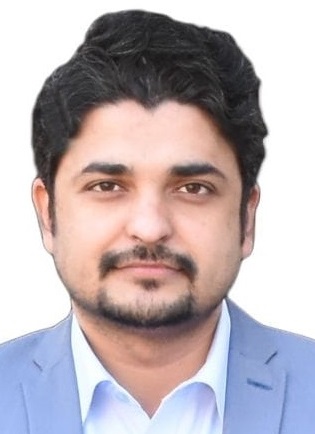Dr Saimon Shahzad
As the educational landscape has been reshaped by the rapid rise of private institutions in the recent years, this diversification of educational avenues has been hailed for increased accessibility, accompanied by a growing concern: the potential degradation of educational quality. Delving deeper, an examination of the visiting or contract faculty culture in the government universities reveals an additional layer of complexity that significantly impacts the overall learning experience. Whereas private institutions grapple with maintaining high standards, a unique challenge looms over government universities – the hiring of visiting or contract faculty.
This practice, often driven by cost-saving measures, has raised multiple questions due to the potential repercussions on higher education. The culture of employing visiting or contract faculty members, who are frequently recent graduates or professionals with limited higher education credentials, is a double-edged sword.
On one hand, it is perceived as a cost-effective solution for managing classes. These individuals, typically paid a meager sum of Rs 800-1,000 per class, often lack the experience and formal education required by regulatory bodies like the Higher Education Commission (HEC). This situation can lead to a disparity between the qualifications of instructors and the academic standards set by the governing bodies. While this approach might offer a temporary solution to the financial constraints faced by universities, it can inadvertently compromise the quality of education.
The presence of faculty members who lack the pedagogical training, subject mastery, and research exposure necessary to provide a well-rounded educational experience is of a significant concern. So, the students are at risk of receiving subpar instructions that fails to equip them with the critical thinking skills and deep understanding essential for their academic growth. Furthermore, the practice of relying heavily on the contract faculty might undermine the very essence of university education. A vital aspect of higher learning lies in the continuity of interaction between the students and educators.
Hence, full-time faculty members invest time in curriculum development, mentoring, and maintaining a scholarly environment. The transient nature of the contract faculty disrupts this crucial link, potentially leading to inconsistent teaching methodologies, coverage gaps, and limited engagement with students beyond the classroom. In the light of these challenges, there is an urgent need for a comprehensive re-evaluation of the educational system. The universities must prioritize the quality of education over short-term financial gains.
Therefore, the role of the educators should not be underestimated; they are pivotal in shaping the academic future of the nation. A balanced approach involves employing a combination of full-time faculty with the requisite qualifications and experience, complemented by visiting professionals who bring real-world insights to the classroom. A collaboration between the universities and industry can foster an environment where professionals contribute their expertise while dedicated educators ensure a structured, research-oriented, and engaging learning experience.
To conclude the debate, it is important to mention that as the education landscape evolves, maintaining high standards remains paramount. The contract faculty culture, though seemingly cost-effective, poses significant challenges that can erode the educational foundation of universities. By investing in the qualified educators and fostering collaboration between the academia and industry, we can create an education system that equips students with both the practical knowledge and enduring academic skills. So, only then we can truly prepare them for the demands of an ever-changing world.
The writer holds a PhD in pharmacology from the University of Peshawar, and has many years of experience in teaching, research and administration in higher education sector. He can be reached at: saimonshahzad@gmail.com.
Related Posts






Comments